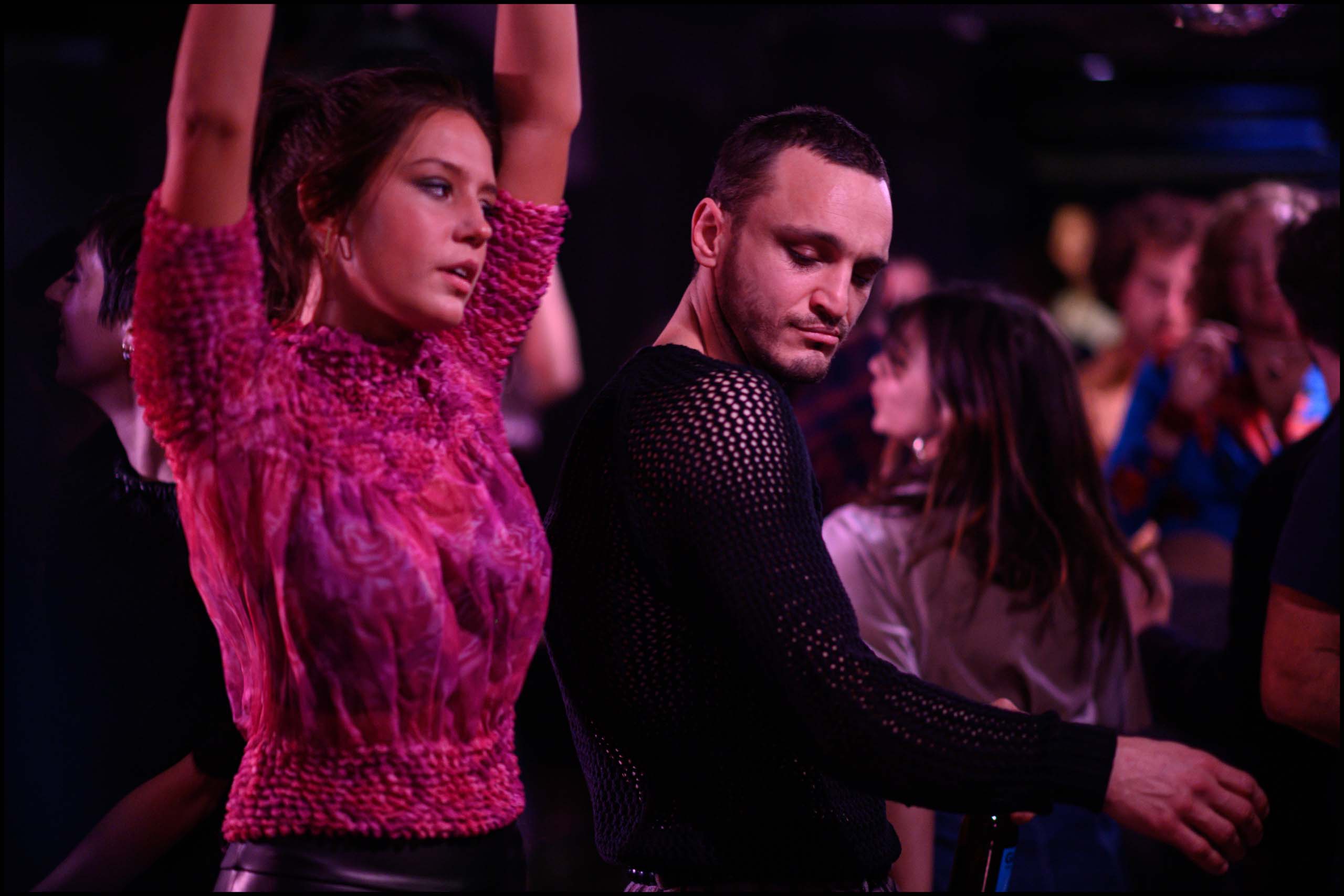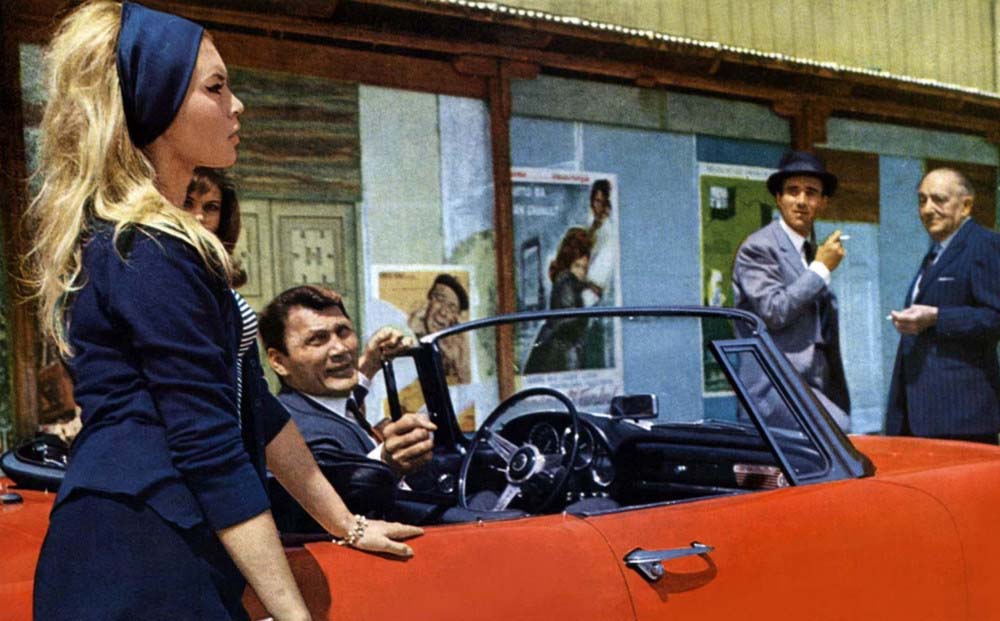- Film And TV
- 08 Sep 23

Acclaimed director Ira Sachs discusses his stellar new drama Passages, which explores a Parisian love triangle.
Over three decades of filmmaking, Ira Sachs has crafted keenly observed character studies that delve into the complexities of human emotions. Beginning with his debut feature The Delta, a languid exploration of queer desire in his hometown of Memphis, he continued with Keep The Lights On, a portrayal of a tumultuous decade-long relationship between two young men, and Love Is Strange, centred around the marriage of an older gay couple.
These films have consistently delved into the influence of external factors like addiction, gentrification and wealth on relationships, the intricacies of love, and the pain it can cause. Passages, a notably liberated work in Sachs’ filmography, showcases vigorous eroticism and an unreserved forward momentum. Here, the director grants three young European arthouse talents ample room to embody their roles and fearlessly bring to light the inner complexities of pleasure, pain and confusion.

Ira Sachs
German actor Franz Rogowski plays film director Tomas, a man driven by pure id. Selfish, mercurial and charismatic, he’s married to soft-spoken Martin (Ben Whishaw), but at the wrap party for his latest film, Tomas sleeps with schoolteacher Agate (Adèle Exarchopoulos) sparking off a series of sexual and romantic encounters and entanglements that threaten to unravel them all.
Advertisement
Sachs lives in New York with his husband, and has often written about gay characters. In Passages, Tomas’ sexual fluidity is never remarked upon, which is something that came up late during the filming process.
“I’m a gay man, and obviously for my generation, labels were very important because we needed to fight to be recognised and to fight for particular rights,” says the director. “But working with these actors who are all a bit younger, it became clear that the labelling wasn’t as important, which felt interesting itself.”
We first encounter Tomas on a film set, where he’s being nightmarishly demanding, and when he returns home to Martin, his long-suffering partner remarks, “You always get like this at the end of a film.” As a director, this feels like a pointed remark towards Sachs’ own profession, and the director admits that he sometimes has to confront his own desire for power.

Ben Whishaw and Franz Rogowski
“These questions of power felt really relevant to me as a man who was sort of questioning what I had lost during the lockdown,” he says, “and what I needed and what I expected as a man who was used to being empowered. I was interested in my own feelings around it, like why was I so depressed and why do I feel I should I have more? Then as a man living under President Trump, those questions of the gap between what you have as a man, and what you want and what you feel entitled to, feel more pressing.”
While Sachs may not embark on affairs with women after his films wrap, he does need to shift modes.
Advertisement
“I’m used to my words having impact that they will not have for the rest of my life,” he says. “When you’re a director, you have this kind of authority, and there’s a very clear hierarchy on set which doesn’t exist anywhere else, so it takes a moment for you to transition out of it. Basically, I have to stop myself from constantly interrupting my family, because I get very used to talking over people!
“There’s also a way in which you become inured to social expectations of politeness, so I think I see myself in that. I see it also as a parent – you can’t control your children the way you can control people working on a set. And it’s really important to understand that you should not!”
The desire for sex, transformation, and power fuel Passages. Though Agate and Martin are treated horrifically by Tomas, they also treat people in their life quite coldly, and are constantly vying for something, be it love, attention or respect. These struggles play out as a series of entrances and exits, as Tomas explodes in and out of Martin and Agate’s lives. We rarely see the characters on their own, and know little about them beyond their sexual entanglements, which gives Passages a unique structure.

Adele Exarchopoulos and Franz Rogowski
“I think of it as a series of middles,” says Sachs. “What’s interesting to me is the shift in relationships, the unexpected places in which people who might seem like the ones with the most power become the weakest. So in every scene, there’s a question and that’s actually what creates drama and suspense. To me, it’s a combination of an action and suspense film.”
The film is visually beautiful, with all the characters wearing stunning outfits. There’s also remarkable production design in high-ceilinged Paris apartments, or small French chateaus with textured walls, with pops of primary colours giving every shot a painterly appearance. Sachs said he looked to film stars like Brigitte Bardot to style Adèle Exarchopoulos, and looked to older films to create an emotional experience with the visuals.
Advertisement
“I wanted to make a film of visual impact,” he says, “so choices were made to veer away from the real towards the emotional, which included the use of colour. I was thinking about Godard’s Contempt and Fassbinder’s Beware Of A Holy Whore. These are all films where you remember the resonance of colour more than plot.”

Brigitte Bardot in Contempt (1963)
In the States, Passages has received an NC-17 rating, meaning no teenagers can see it and many cinemas won’t even carry the film – which is disappointing, but not unsurprising. Though the ’90s and 2000s were rife with films marketed towards teenagers that centred on young straight men desperately trying to have sex, getting sex, receiving oral sex, the ratings body in America has always been prudish when it comes to women receiving pleasure, or queer characters having sex.
Films featuring cunnilingus such as Blue Is The Warmest Colour and Charlie Countryman often receive an NC-17 rating, and films about queer characters such as The Miseducation Of Cameron Post also receive disproportionately high ratings. It seems to fit in with the homophobic backlash that is happening across the United Sates, where drag shows and books about gender inclusivity and different sexualities are being banned at terrifying rates, along with a rise in violent transphobia.
“It’s bizarre,” says Sachs. “There are these rules, like you’re not allowed to say ‘motherfucker’ twice. Who makes these rules? I’m not worried for my own film, because I made it with freedom and MUBI is releasing it with that same freedom. But I do think it acts as a direct warning to other people about what films and images to create – and that’s chilling.”
• Passages is in cinemas now.










